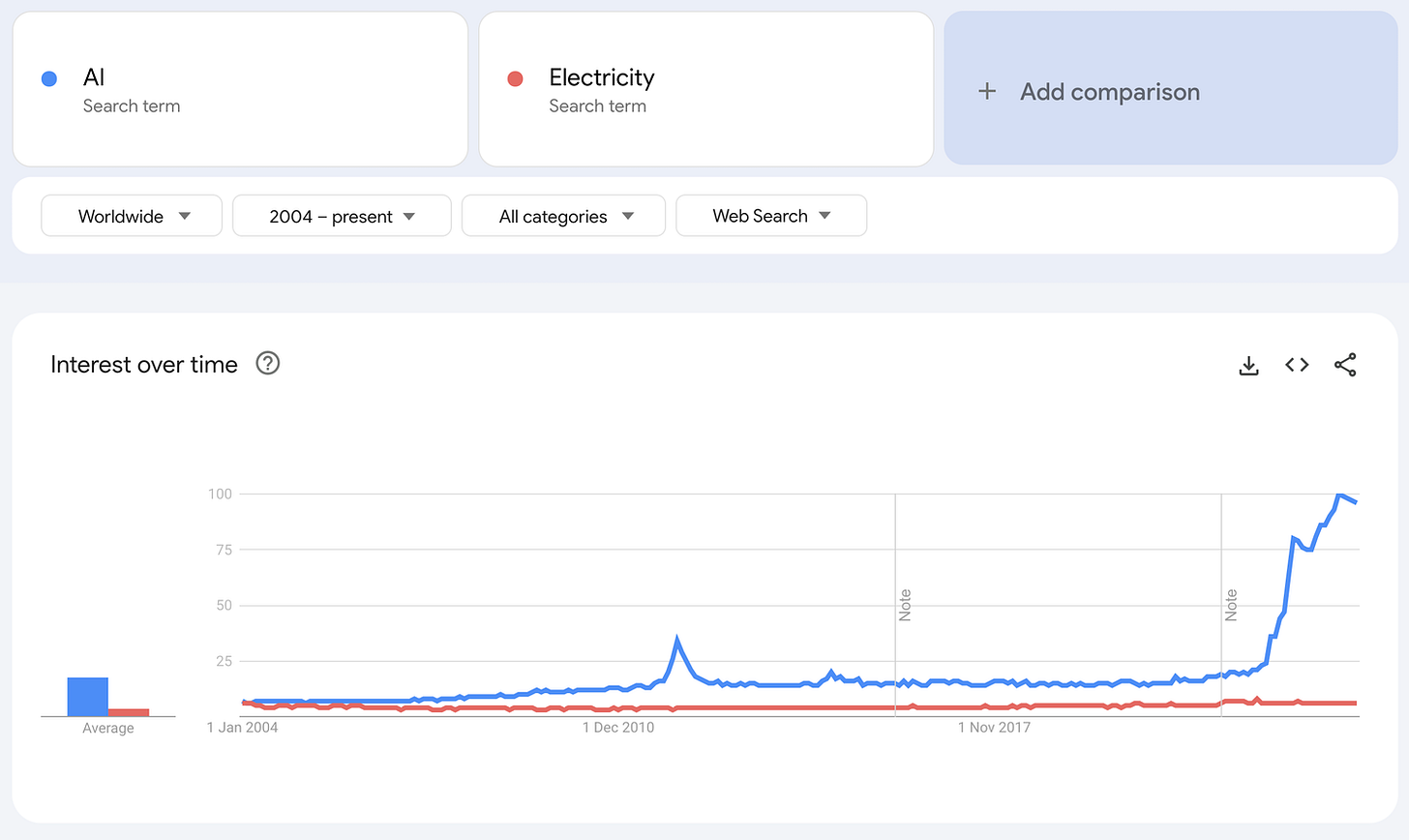AI: The New Electricity Powering Our Future
Learn how AI is becoming as essential as electricity, driving innovation, productivity, and global solutions. Discover the future.
In recent years, the concept of Artificial Intelligence (AI) as a commodity has gained significant traction. This idea suggests that AI will soon become as ubiquitous and essential to our daily lives and business operations as electricity is today. As we stand on the cusp of this AI revolution, it's crucial to understand what this means for our society, economy, and future.
The Commoditization of AI: What Does It Mean?
Just as electricity transformed industries and daily life in the late 19th and early 20th centuries, AI is poised to revolutionize our world in the 21st century. The commoditization of AI refers to the process by which AI technologies become standardized, widely accessible, and integrated into routine operations across various sectors.
This transition is already underway. Cloud-based AI services now allow businesses of all sizes to leverage AI capabilities without the need for extensive in-house expertise. No-code and low-code AI platforms are democratizing AI development, enabling non-experts to create AI-powered applications. Meanwhile, open-source AI tools and models are freely available for developers and researchers, further accelerating innovation and adoption.
The Benefits of AI as a Commodity
1. Enhanced Productivity and Efficiency
As AI becomes more accessible, businesses across all sectors are experiencing significant productivity gains. AI-driven automation is streamlining processes, reducing errors, and freeing up human workers to focus on more complex, creative tasks.
For instance, in manufacturing, AI-powered predictive maintenance systems are helping companies anticipate equipment failures before they occur, minimizing downtime and reducing maintenance costs. In healthcare, AI-assisted diagnostic tools are enabling faster, more accurate diagnoses, potentially saving lives and improving patient outcomes.
2. Personalization at Scale
The commoditization of AI is enabling unprecedented levels of personalization across various industries. In retail, AI algorithms analyse vast amounts of customer data to provide tailored product recommendations, enhancing the shopping experience and driving sales. In education, AI-powered adaptive learning systems are customizing curricula to individual student needs, potentially revolutionising how we learn.
3. Improved Decision Making
As AI becomes more integrated into business operations, it's enhancing decision-making processes across the board. In finance, AI algorithms are analyzing market trends and making trading decisions at speeds and scales impossible for human traders. In agriculture, AI is helping farmers make data-driven decisions about crop management, optimizing yields and reducing resource usage.
4. Innovation and New Business Models
The widespread availability of AI is spurring innovation and giving rise to entirely new business models. AI-as-a-Service (AIaaS) platforms are allowing companies to access sophisticated AI capabilities without significant upfront investment. This is leveling the playing field, enabling startups and small businesses to compete with larger, more established players.
5. Addressing Global Challenges
As AI becomes more accessible, it's being applied to some of the world's most pressing challenges. From climate change mitigation to drug discovery, AI is accelerating research and enabling breakthrough solutions. For example, AI models are being used to optimize renewable energy systems, predict extreme weather events, and develop new materials for carbon capture.
Challenges and Considerations
While the benefits of AI commoditization are significant, it's important to acknowledge the challenges this transition presents:
Job Market Disruption: As AI automates more tasks, certain jobs may become obsolete. This will necessitate large-scale reskilling and adaptation of the workforce.
Data Privacy and Security: The increasing reliance on AI systems raises concerns about data privacy and the potential for misuse of personal information.
Ethical Considerations: As AI becomes more prevalent in decision-making processes, questions of bias, fairness, and accountability become increasingly important.
Unequal Access: Despite increasing accessibility, there's a risk that the benefits of AI could be concentrated among those with the resources and skills to leverage these technologies effectively.
The Road Ahead
The commoditisation of AI represents a paradigm shift in how we live and work. As AI technologies continue to evolve and become more pervasive, their impact on efficiency, productivity, and innovation is likely to grow exponentially.






